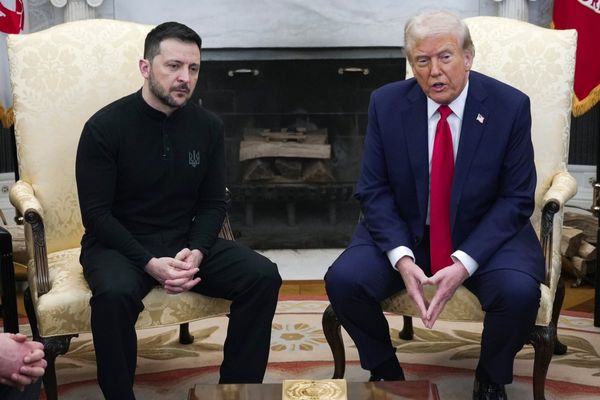
Rachel Reeves sees the clearest, tell-tale signs of poverty among schoolchildren in her Leeds West constituency. “You look at the kids and you just think, I know you are poor.
“You can see it in the school coats, especially in the winter, and in the school shoes. Kids not wearing the proper school uniform, sort of a bit of mix-and-match, and it is really sad.”
Incomes are two-thirds of the national average in the area she represents, just over £20,000 a year. “Although unemployment is low, a lot of the jobs are not paying wages that you can properly afford to live on,” Reeves says. “So many people rely on universal credit to top up their earnings – 60% of people in poverty today are in work.”
When Reeves first became Labour MP for the area 12 years ago, there were no food banks. “Not because no one cared but because we didn’t need them,” she says. Now, they are everywhere and in greater demand than ever as cost-of-living pressures intensify.
“We have set up clothing exchanges and school uniform exchanges, we have got a baby bank with stuff for young kids with nappies and clothes for kids. We refer people to food banks regularly. The schools are helping children with school uniforms. It is really tough.”
What worries the shadow chancellor most, however, is that poverty is about to get much worse in areas such as Leeds West, as inflation soars and energy prices go through the roof. She produces figures from the Resolution Foundation and other organisations showing that the number of people living in absolute poverty is expected to grow by as much as 1.6 million over the next few years.

On Wednesday, her opposite number, the chancellor of the exchequer Rishi Sunak, will deliver his spring statement in the House of Commons with Conservative MPs among those urging him to take much more drastic action on the cost of living crisis.
Does Reeves think that Sunak, one of the richest men in British politics, gets it?
“We will find out on Wednesday,” she says, adding that there has, as yet, been no sign he does. “He really does need to show more empathy.”
In addition to meeting her demands for a windfall tax on the huge profits of North Sea oil and gas companies, to pay for extra help with energy bills, and the scrapping of the planned 1.25 percentage point rise in national insurance due next month, Sunak must, Reeves tells the Observer, raise benefits by about 6% (which is the expected rate of inflation for March) for millions of people who are on low incomes, including pensioners.
Under present plans, benefits will rise by just 3.1%, because the level of uplift was set in September last year when that was the rate of inflation.
Many thinktanks are now warning of an intolerable drop in real incomes, which will hit the poorest hardest, unless benefits are raised to match the level at which prices are increasing. Some, such as the Resolution Foundation, are calling for a rise in benefits of 8% to match possible inflation later this spring.
“I think this an historic moment,” Reeves says, one that will show whether the government understands the plight of low earners. “We have not experienced inflation like this for 30 years now. If the chancellor sticks to his plans for six months ago he will not be rising to the scale of the challenge.
“The chancellor should look at how to uprate benefits in a fair way. They are supposed to go up by inflation and they are not at the moment.”
She says that he has the necessary cash to act, with VAT and other tax receipts having soared by billions as a result of higher inflation.
In February, before Russia’s invasion of Ukraine, Sunak unveiled what was billed as an emergency £9bn package to help people with their energy costs. One element of the plan was a £200 discount on bills for all households this October. The money would, however, be clawed back from everyone at the rate of £40 a year from 2023 onwards so it was, in a sense, only deferring the pain. The second measure was a £150 rebate from council tax bills to be paid in April to those with homes in bands A to D in England, with the Treasury making money available for the devolved administrations to cut bills by similar amounts.
Some think that Sunak will increase the £150 figure on Wednesday and that he will freeze fuel duties yet again, or even cut them. Reeves says that she would support such moves because the situation on the ground is so dire.
“I was talking to Citizens Advice and it has had more referrals recently from people in debt with energy companies than they have ever seen before, and that is before the rises that are coming in April,” she says.
“People are really scared. Mums and dads especially are worried sick about what is going to happen. If this government is serious about levelling up it has to act.”







